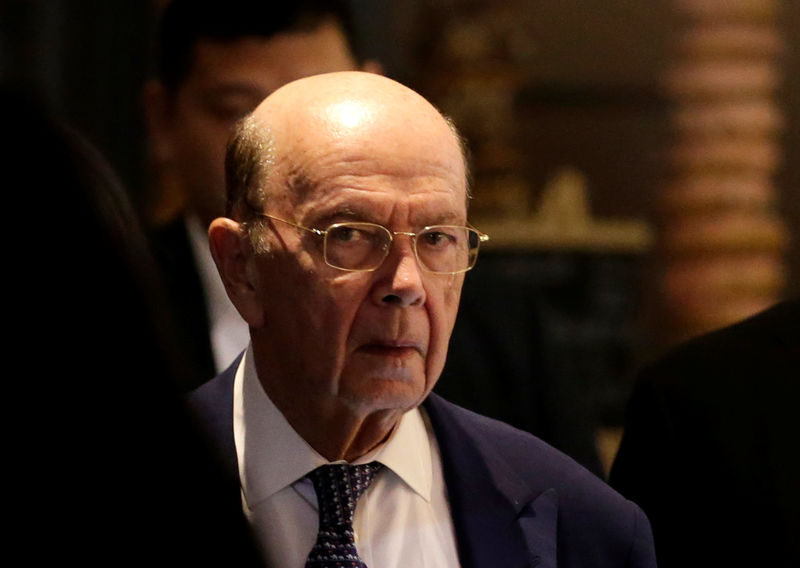By Philip Blenkinsop and Michel Rose
PARIS (Reuters) - Talks in Paris to avoid a transatlantic trade war showed no sign of a breakthrough on Wednesday, less than 48 hours before Donald Trump's deadline on tariffs, as the United States and Europe defended opposing views of the global economic order.
Invoking memories of the pre-World War Two 1930s, French President Emmanuel Macron warned the world was at risk of sleepwalking towards war.
"Trade wars quickly become war, full stop," Macron said. "This continent felt it in its flesh. It paid the consequences."
Trump has imposed tariffs on imports of aluminium and steel, hitting China, but gave the European Union and some other partners a temporary exemption, which expires on Friday.
With less than two days before the deadline, talks were still going on at the Organization for Economic Cooperation and Development.
The French and German finance ministers and the EU's trade commissioner held a series of meetings with the U.S. Commerce Secretary Wilbur Ross.
A French presidential adviser said U.S. tariffs were "very likely". The Commission pointed to EU trade chief Cecilia Malmstrom's comment on Tuesday that she expected some sort of U.S. measures to cap EU exports.
French Finance Minister Bruno Le Maire and German counterpart Peter Altmaier told journalists the European response would be united and firm.
"We are prepared to react in a united and clear way whatever the decision of the president," Altmaier said.
EU leaders agreed earlier in May to open discussions about market access for U.S. products, but only if Washington granted the EU a permanent exemption from tariffs.
Ross said the two should still negotiate even if the United States imposed tariffs on metals, without revealing whether that was Washington's plan.
"There can be negotiations with or without tariffs in place. There are plenty of tariffs the EU has on us," Ross told a panel.
China, he said, had continued to negotiate even after getting hit by tariffs. "It's only the EU that is insisting we can't negotiate if there are tariffs."
A source at Macron’s office said it would be wrong to think China's current trade talks with the United States meant "brutal bilateralism" had worked: "What we see so far is that China doesn't seem to have given away much."
Dutch Trade Minister Sigrid Kaag added that a 1962 trade law allowing protection for U.S. producers on national security grounds that Trump had invoked belonged to a different era.
LONG WTO CASES "A JOKE"
Ross also took aim at the World Trade Organization, where Washington has blocked appointments to its appeals chamber, effectively engineering a crisis in the system of settling global disputes.
Any dispute mechanism that takes multiple years to settle cases was "no good", he said, labelling a 14-year case over subsidies for aircraft Airbus "a joke".
He also said that in many multilateral organisations, people had substituted conversation for action.
"We don't think just raising issues is adequate," he said, adding that the WTO needed more than just the "tweak".
Macron called on the world's main economic powers to reform the WTO to save multilateralism and produce a blueprint by the end of the year.
Ross denied claims that U.S. tariffs would harm its own steel-consuming industries. The price of a can of soup would rise just a fraction of a cent and car prices would go up by less than 1 percent, he said.

"The sky has not fallen in the United States since we put the tariffs on. It hasn't fallen and it won't," he said.